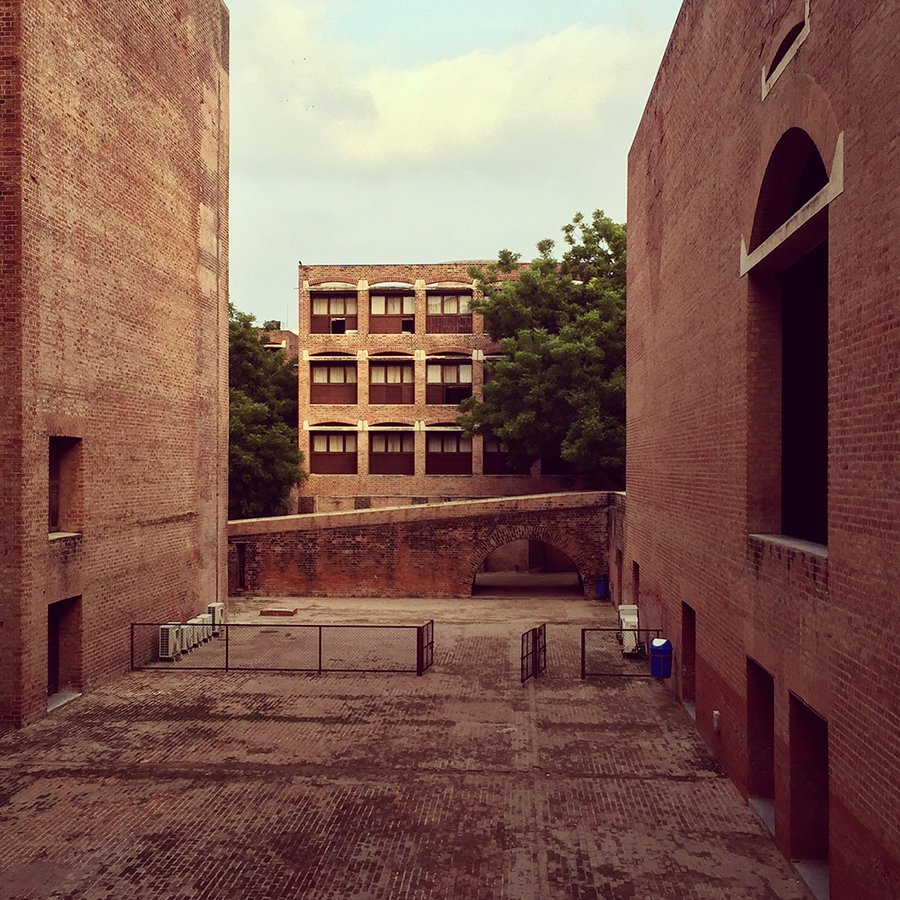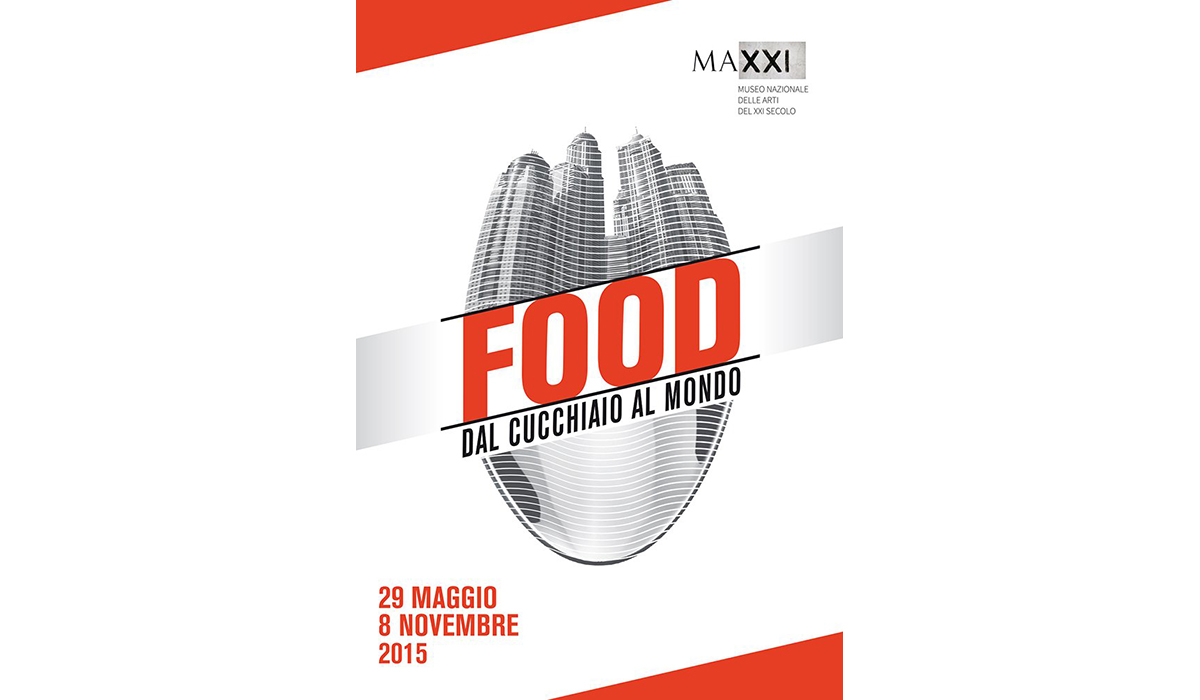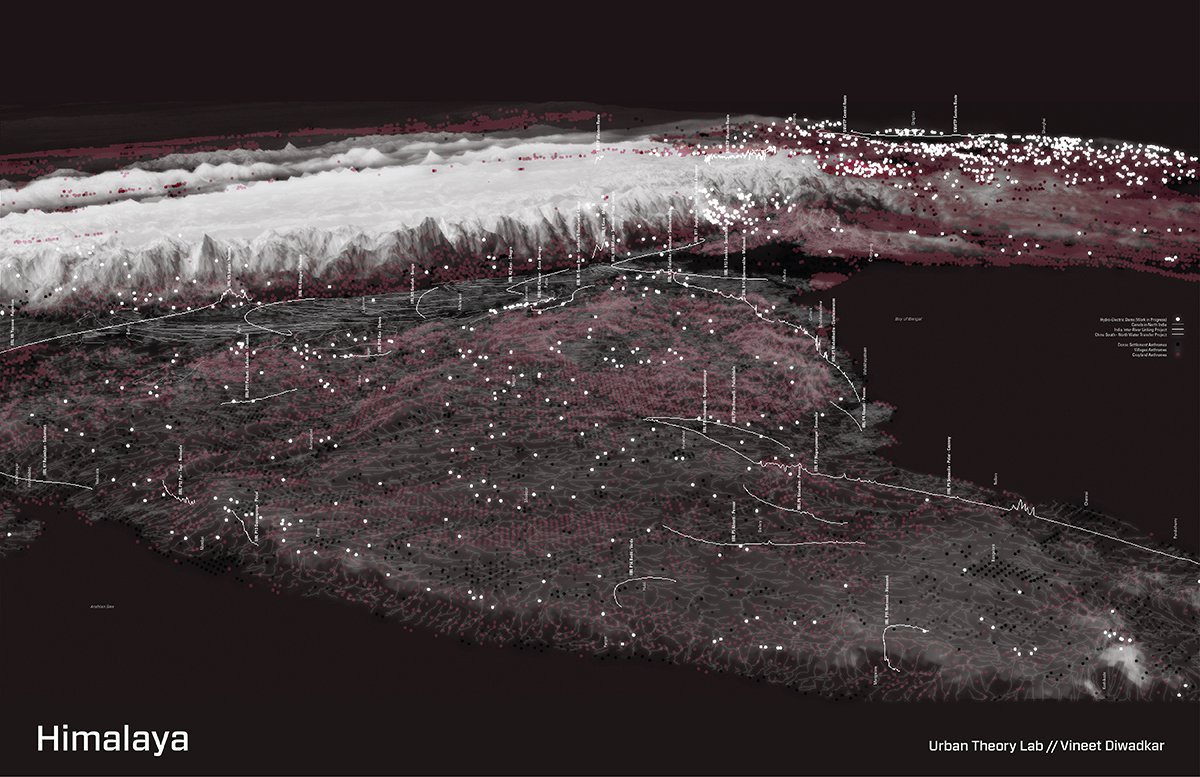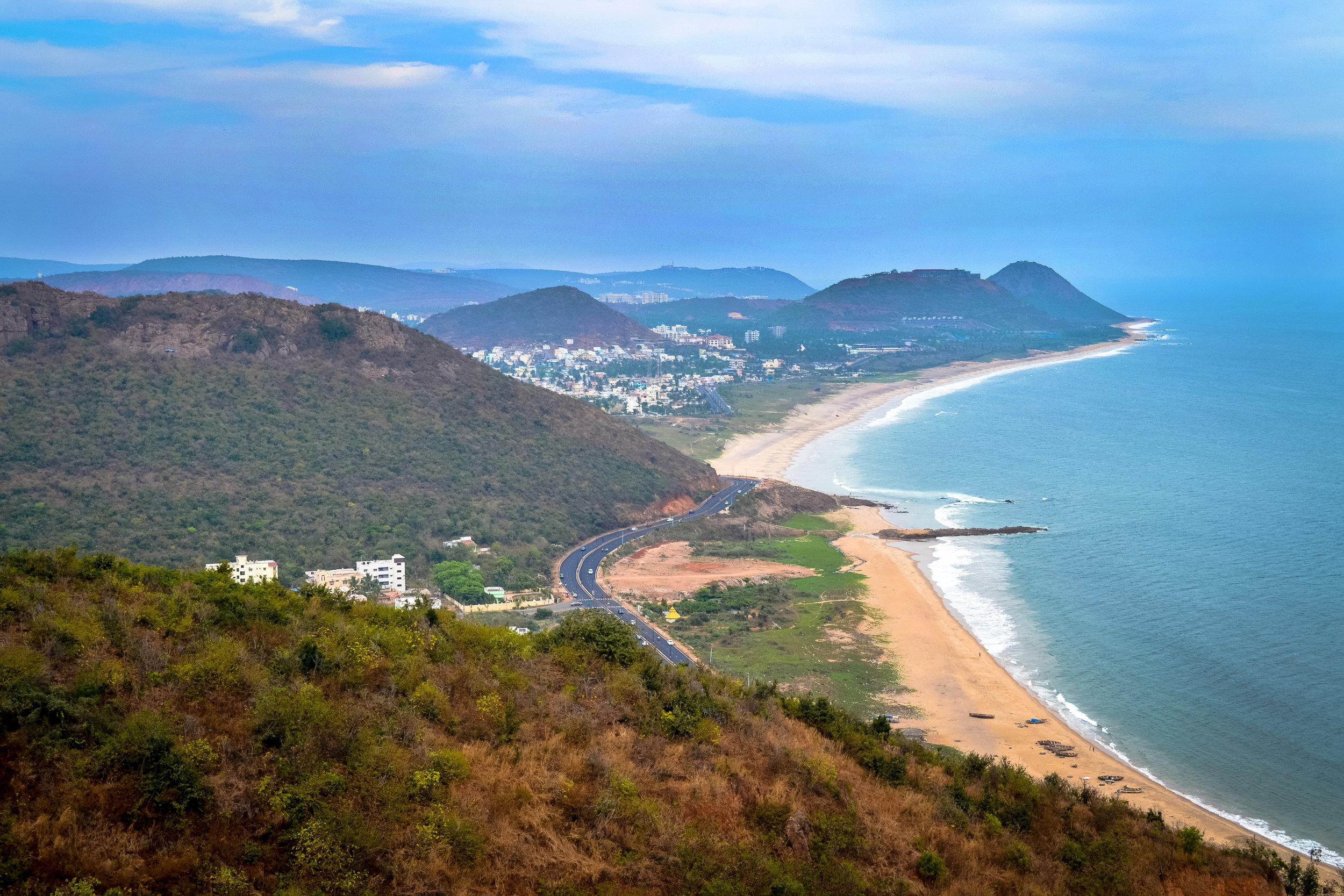 Launch of the action plan for the "Smart Skill Vizag" workforce training program as part of Aecom's Visakhapatnam Smart City Integrated Framework Plan to provide tailored functional and technical skills training pathways for all socio-economic communities by connecting users with local training providers with an emphasis on key market sectors and smart systems. The Smart Skill Vizag program aligns with the National Skills Qualification Framework (NSQF) and with the Skill India program.
Launch of the action plan for the "Smart Skill Vizag" workforce training program as part of Aecom's Visakhapatnam Smart City Integrated Framework Plan to provide tailored functional and technical skills training pathways for all socio-economic communities by connecting users with local training providers with an emphasis on key market sectors and smart systems. The Smart Skill Vizag program aligns with the National Skills Qualification Framework (NSQF) and with the Skill India program.
Field Visit, Visakhapatnam
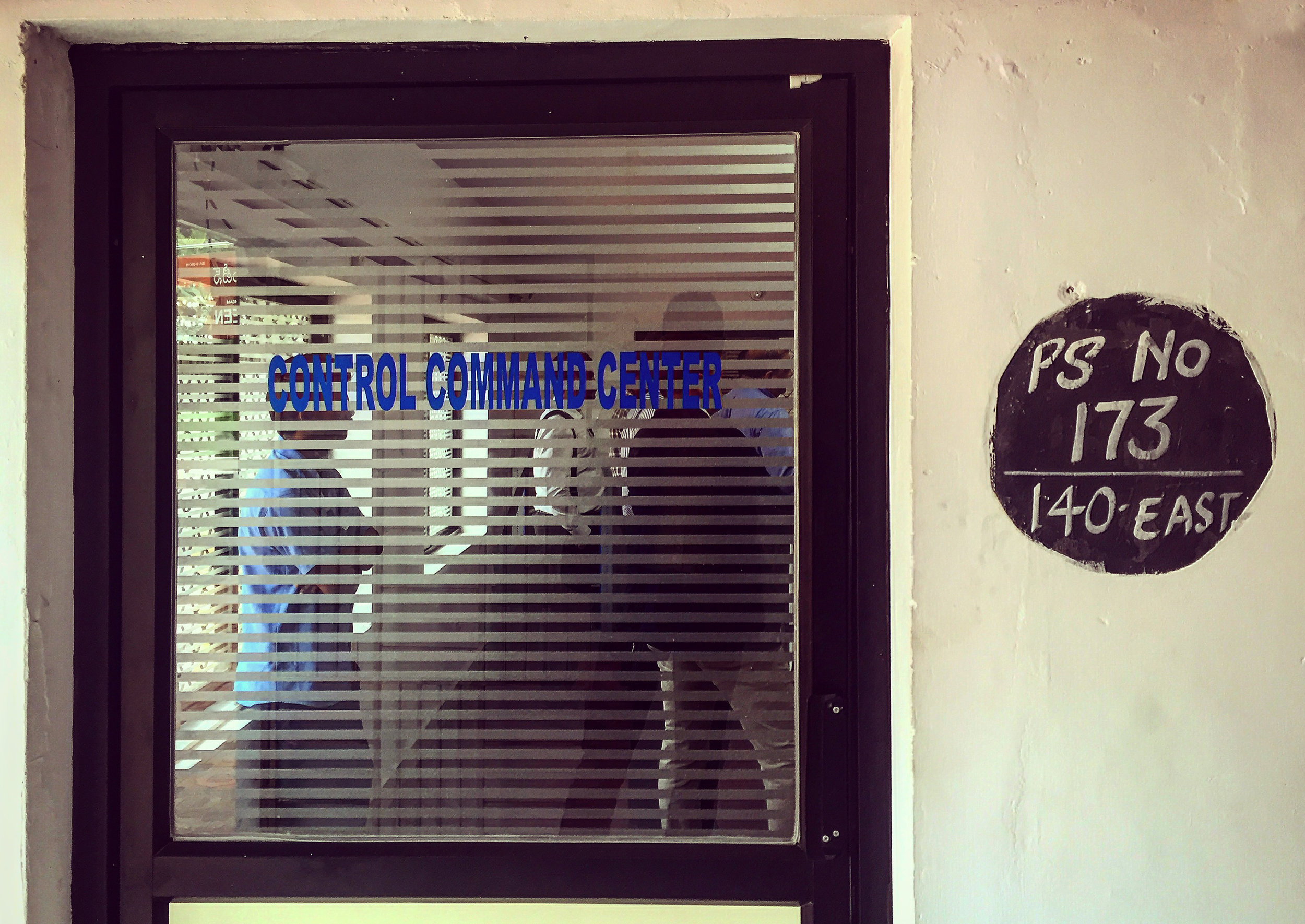 Learning from the design and management of "smart city" sensor systems, and their biases and blind spots, as part of Vizag's Command & Control Centre while working on Visakhapatnam Smart City Regional Framework Plan and Projects with AECOM.
Learning from the design and management of "smart city" sensor systems, and their biases and blind spots, as part of Vizag's Command & Control Centre while working on Visakhapatnam Smart City Regional Framework Plan and Projects with AECOM.
Launch of Vision Report for Visakhapatnam Smart City Regional Framework Plan
 Launch of the economic, spatial, and infrastructural Vision Report as part of AECOM's Visakhapatnam Smart City Regional Framework Plan and Projects.
Launch of the economic, spatial, and infrastructural Vision Report as part of AECOM's Visakhapatnam Smart City Regional Framework Plan and Projects.
"Planning for Conservation: Looking at Agra" book in print
 Edited by: Rahul Mehrotra, Vineet Diwadkar, José Mayoral Moratilla.
Edited by: Rahul Mehrotra, Vineet Diwadkar, José Mayoral Moratilla.
With contributions from and participation by: Jana Cephas, Gísli Marteinn Baldursson, Erica Blonde, Jamie Blosser, Noor A Boushehri, Scott Campbell, Zhuo Cheng, Shahira Fahmy, Daniel Feldman, Maria Letizia Garzoli, Marcus Goodwin, Xinjun Gu, Hayrettin Gunc, Peichen Hao, David Henning, LaShawn Hoffman, Elad Horn, Andrew Howard, Seunghoon Hyun, Maria Jakkola, Navajeet Khatri, Gunho Kim, Jacob Koch, Yunjie Li, Shiyao Liu, Alex Medina, Mark Mulligan, Akihiro Moriya, Andrew Nahmias, Marc Norman, Nishiel Patel, Roma Patel, Thaddeus Pawlowski, Ning Pei, Jane Philbrick, Zhuangzhuang Song, Aliza Sovani, Clayton Strange-Lee, Adelene Tan, Gabe Tomasulo, Rob Wellburn, Mengchen Xia, Ruoyun Xu, Caroline Yamate, Han Yang, Sally Young, Ying Zhang, Bin Zhu, Kolu Zigbi.
Photographs by: Dinesh Mehta supported by Dipti Mehta. Design by: Jennifer Saura and Martin Pavlinic.
This book was made possible by generous contributions by the World Monuments Fund, Thaw Charitable Trust, Pierre and Maria Gaetana Matisse Foundation, Aga Khan Program for Islamic Architecture at Harvard University, Loeb Fellowship at the Harvard University Graduate School of Design, Harvard University South Asia Institute, and the Harvard University Graduate School of Design.
Field Visit, Visakhapatnam

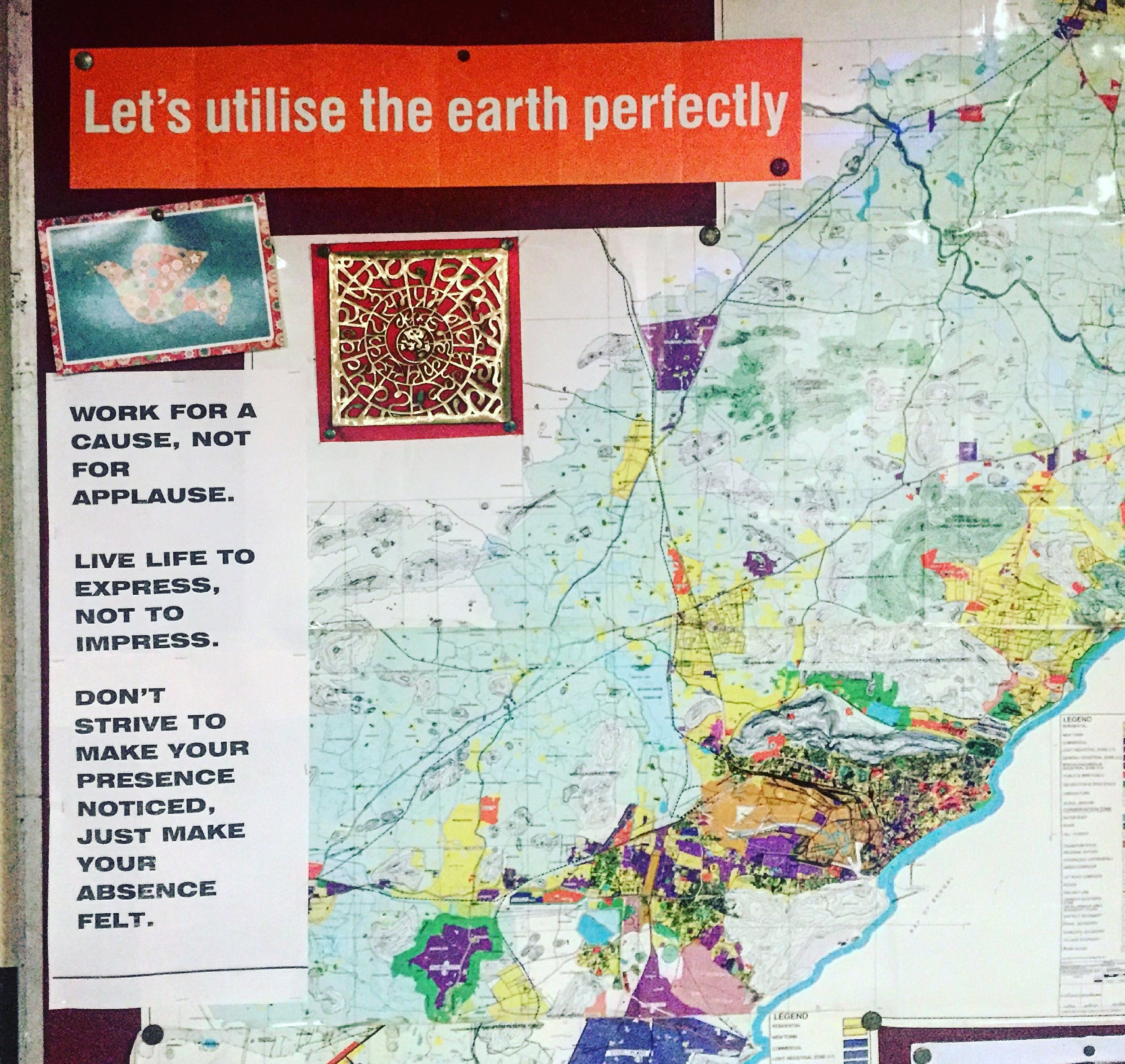 Preparations begin for the Integrated Regional Smart City Plan Visakhapatnam Smart City Regional Framework Plan and Projects with AECOM.
Preparations begin for the Integrated Regional Smart City Plan Visakhapatnam Smart City Regional Framework Plan and Projects with AECOM.
Spatial Ethnography Lab and Terreform collaborate on Koli Tanks & Berms project
Tanks & Berms: Estuary as Resilience EngineSpatial Ethnography Lab and Terreform
This project adapts a home-grown system of tanks and berms developed by coastal slum residents to address water contamination and flooding. Learn more at OpenIDEO.
"Himalaya" at Shenzhen Biennale of Urbanism/Architecture
 ‘Himalaya’ featured in "Cartographies of Planetary Urbanization" with Urban Theory Lab and ETH Future Cities Lab.
Bi-City Biennale for Urbanism & Architecture
Shenzhen, China
December 2015 - March 2016
‘Himalaya’ featured in "Cartographies of Planetary Urbanization" with Urban Theory Lab and ETH Future Cities Lab.
Bi-City Biennale for Urbanism & Architecture
Shenzhen, China
December 2015 - March 2016
Informal Markets World Reader launches at Storefront for Art and Architecture
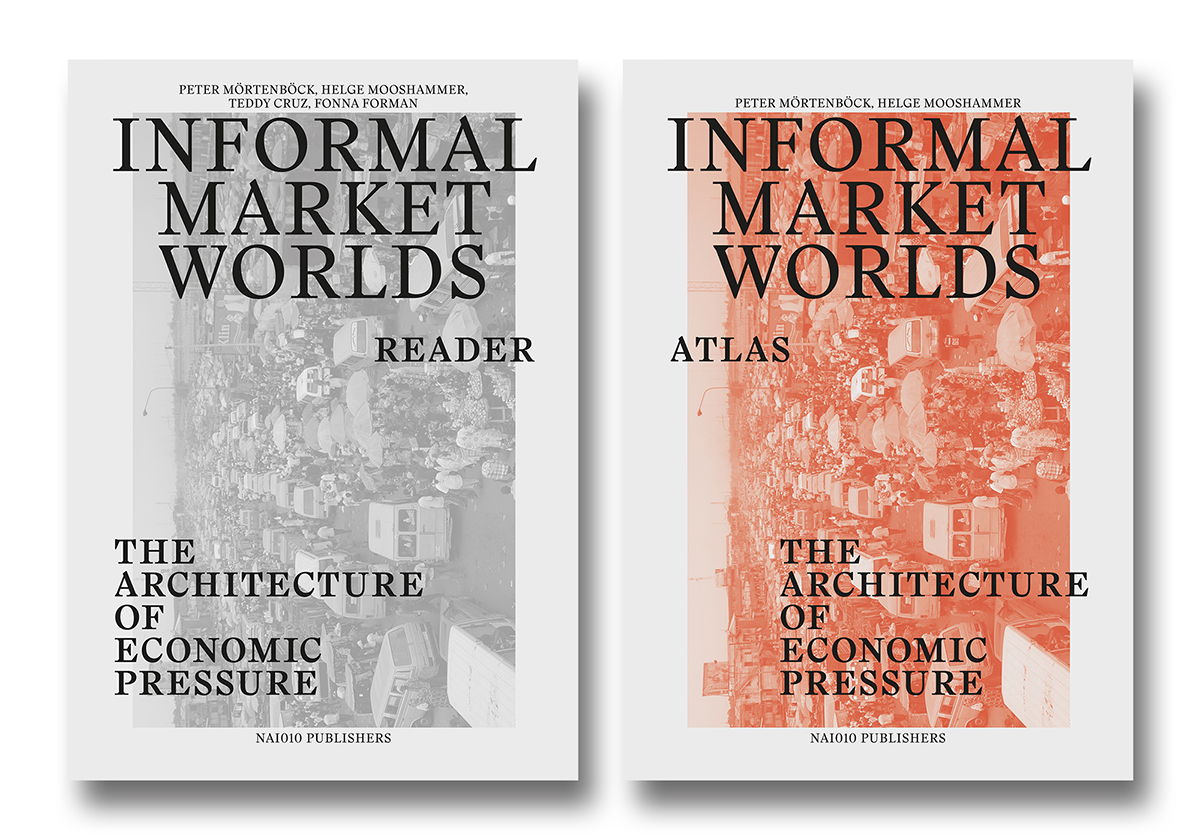 Interrogation Series: Informal Public Demands
Saturday, October 24th, 5:30 – 7:30 pm
Storefront for Art and Architecture
97 Kenmare Street, New York
Interrogation Series: Informal Public Demands
Saturday, October 24th, 5:30 – 7:30 pm
Storefront for Art and Architecture
97 Kenmare Street, New York
Download "From Informality to Parametricism and Back Again."
"Himalaya" featured in The City of 7 Billion exhibition at Yale School of Architecture
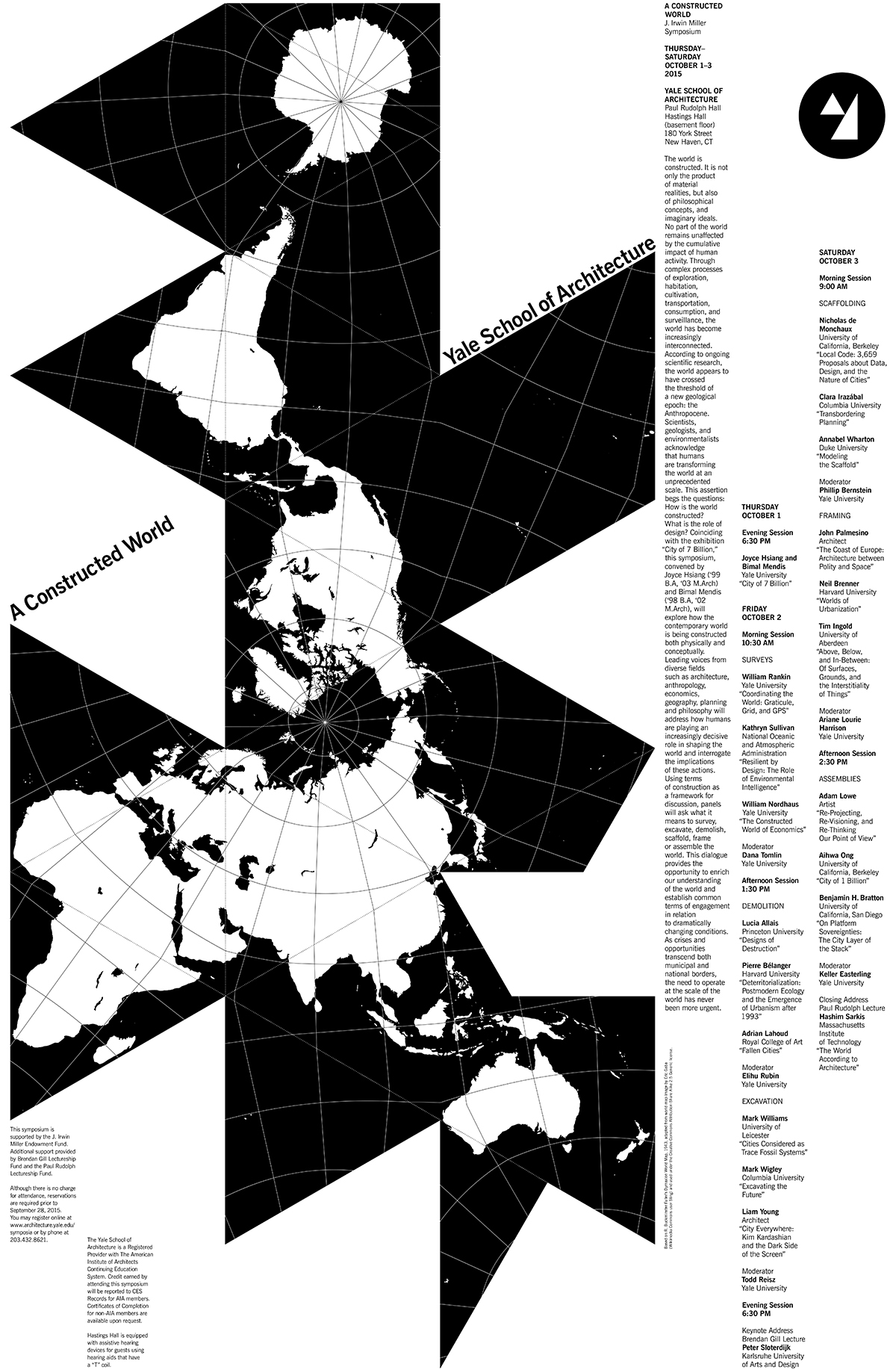 'Himalaya' featured in Urban Theory Lab's contribution to The City of 7 Billion exhibition.
Coinciding with A Constructed World symposium.
Yale School of Architecture, New Haven, CT, USA
3 September - 14 November 2015.
'Himalaya' featured in Urban Theory Lab's contribution to The City of 7 Billion exhibition.
Coinciding with A Constructed World symposium.
Yale School of Architecture, New Haven, CT, USA
3 September - 14 November 2015.
Research Fellowship with Urban Design Research Institute
 Vineet Diwadkar, Research Fellow September - December 2015.
Urban Design Research Institute, Mumbai, India.
Vineet Diwadkar, Research Fellow September - December 2015.
Urban Design Research Institute, Mumbai, India.
Mark Tully reviews "Kumbh Mela" for Indian Express
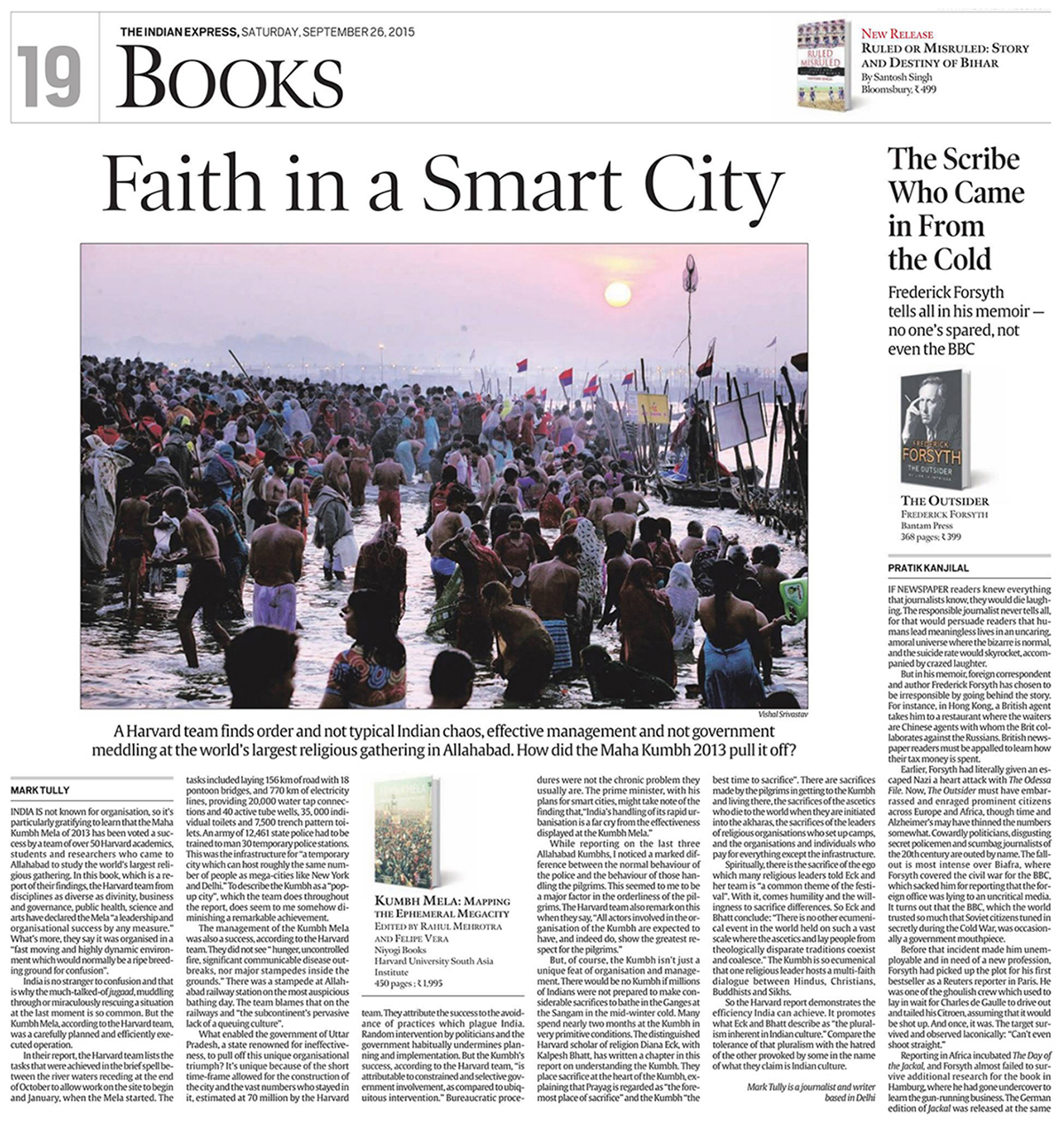 Faith in the Smart City, Mark Tully for the Indian Express
Faith in the Smart City, Mark Tully for the Indian Express
"Planning for Conservation: Looking at Agra" project at Harvard GSD
"Kumbh Mela" book and exhibition launch in Delhi
On Monday, August 17, the Harvard South Asia Institute launched the Kumbh Mela: Mapping the Ephemeral Megacity Book and Exhibition in Delhi, India.
Link to Press Release from the Harvard South Asia Institute.
Related Press: Maha Kumbh much better organized than Fifa World Cup, says Harvard book, Subhash Mishra for Times of India. The inspiring Kumbh lesson, Rahul Jacob for the Business Standard. Harvard book chronicles Maha Kumbh success saga, Subhash Mishra for the Economic Times. In book, Harvard chronicles success of Maha Kumbh, Amita Verma for the Asian Age. Harvard pats Kumbh, Sumi Sukanya for The Telegraph. Harvard, MIT touch to Kumbh planning, Swatee Kher for the Times of India.
Lecture at Indian Institute of Management, Ahmedabad
Urbanités and Society & Space review Urban Theory Lab's "Operational Landscapes"
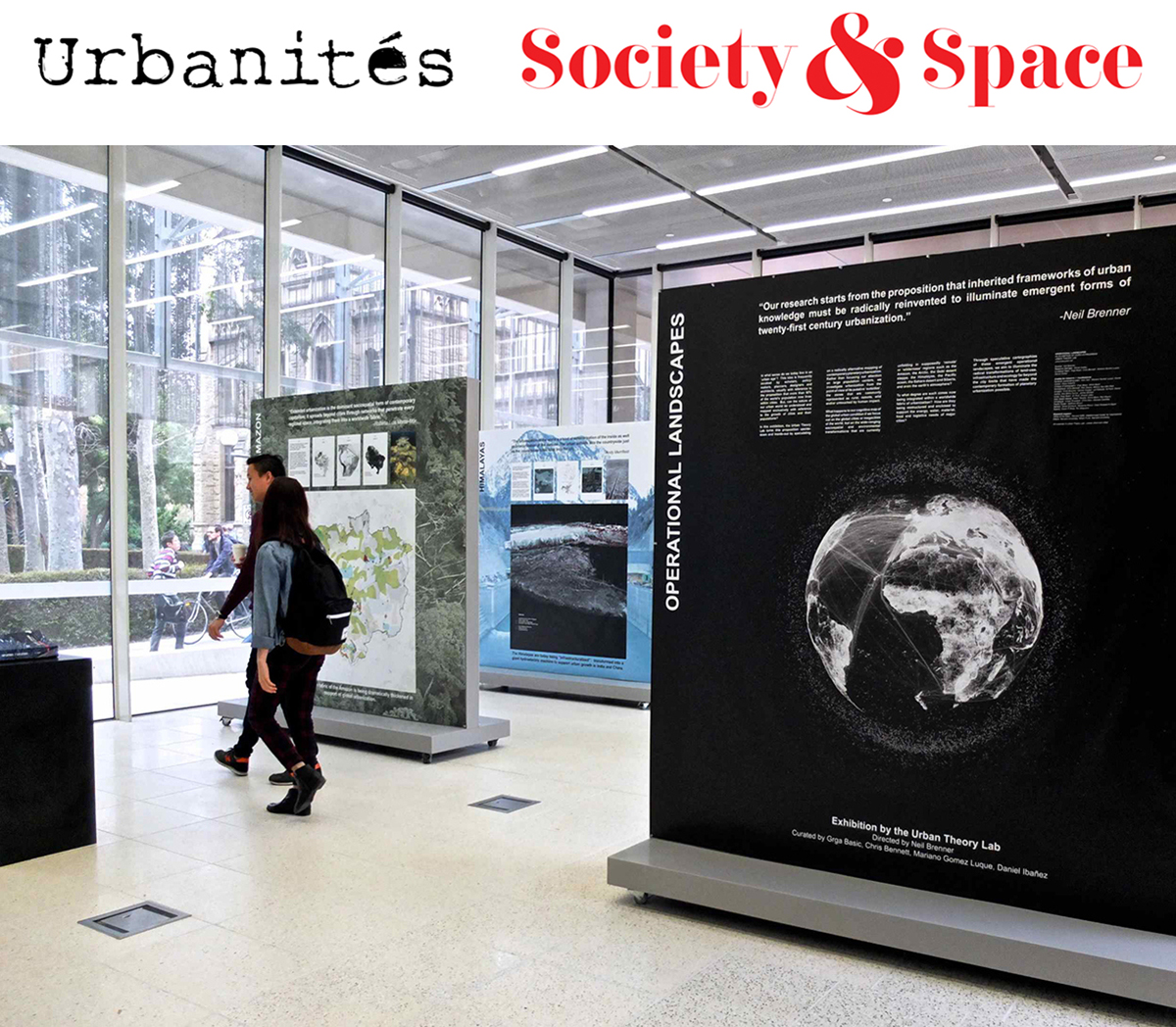 In recent issues of the journals Urbanités and Society & Space, Louise Dorignon of the Université Lumière Lyon II has published a detailed review of the Urban Theory Lab's exhibition on "Operational Landscapes" at the Melbourne School of Design from Spring 2015.
In recent issues of the journals Urbanités and Society & Space, Louise Dorignon of the Université Lumière Lyon II has published a detailed review of the Urban Theory Lab's exhibition on "Operational Landscapes" at the Melbourne School of Design from Spring 2015.
Link to article (FR) at Urbanités. Link to article (EN) at Society & Space. . Link to Press Release from the Urban Theory Lab.
"Dabbawalas of Mumbai" at MAXXI Foundation, Rome
Video exhibited as part of 'Dabbawalas of Mumbai' with RMA Research and Rajesh Vora for this exhibition on the architectural issues surrounding food. Presented by the MAXXI Foundation in Rome, curated by Pippo Ciorra with Giulia Ferracci, Alessio Rosati and Alessandra Spagnoli.
From the MAXXI Foundation: “Over 50 works by different artists and architects, in a presentation that ranges from the dimension of the human body to that of the planet, from the kitchen to the home, from the city to the region and the world, tackle the global political, social, urban and economic effects that the production, distribution, consumption and disposal of food have on communities and territories.”
Food dal Cucchiaio al Mondo exhibition site. Museo Nazionale delle Arti del XXI Secolo, Rome, Italy 29 May – 8 November 2015


